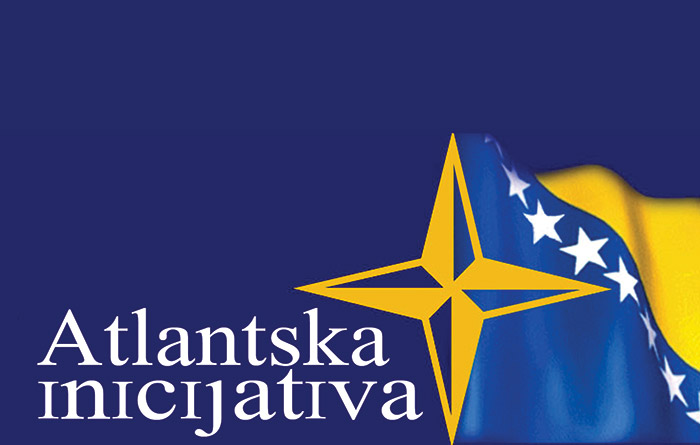What we covered in 2011
A Year of Challenges
Written by: Hannah Coleman
The last year was marked by numerous crises in Bosnia and Herzegovina and in the world. Many affairs have shaken the general public and made us think about the security priorities of the future. Reviewing the topics published in the Atlantic Initiative publications and a broader media focus, we can rightfully say that 2011 was a year of great challenges.
Sustained social changes and uprisings were gaining momentum worldwide. This summer, Great Britain saw riots like never before, showing that even strong, respected nations like Great Britain are vulnerable under pressure of social crises. Budget cuts, corruption and great state debt induced riots in Greece showed just some of the issues that are yet to be resolved. This topic was a center of many debates inside the European Union. Because of all the aforementioned factors, Euro-skepticism was on the rise this year.
Libya, Palestine
The Libyan crisis that spun for a few months came to an end when Moamer Gaddafi was overthrown, and later found murdered. It is yet to be seen how will the new Libyan government perform. Palestine was in the center of attention after its admittance to UNESCO, in spite of United States protests. Also, the Occupy Wall Street movement in the US managed to shake the foundations of capitalism, despite the lack of coverage in American and domestic media.
In the summer, the news of a terrorist attack in Norway by a rightist extremist Anders Behring Breivik, that killed many young people, was a top news in all the international TV stations and newspapers. This crime forced the international community, but individual people as well, to re-evaluate their perception of terrorism.
Crisis in the world, crisis in BiH?
Year 2011 did not start well for Bosnia and Herzegovina either, with media reactions on Bosnian presiding over the United Nations Security Council in January. It was supposed to be a moment in which Bosnia and Herzegovina will show to the world what it can offer – knowledge gained through its own experience. Instead of that, Bosnian presiding was highly criticized in domestic media, mostly because of lack of readiness caused by failure to form the new government after the elections in October 2010. Many thought that it is a mistake to expect a country that is still under some sort of international community protectorate to preside over the UN Security Council.
Unfortunately, in 2011 BiH did not fulfill the condition for the beginning of implementation of NATO Membership Action Plan (MAP), set in April 2010 on a ministerial meeting in Tallinn – to register 69 locations with perspective immovable defense property. One third of these locations is read for registration, but there are some complications with the rest. But completing that requires the formation of new Council of Ministers of BiH and a political will to fulfill the Tallinn condition and to bring BiH closer to NATO. On the other hand, some of the locations, although perspective, would be of greater use to the local community than to the military. One such example is Tito’s secret bunker near Konjic, that would serve better use if it was converted to a tourist spot and an art gallery, than to retain its original use.
The lack of state government slowed down significantly Bosnian advancement towards NATO membership, but towards the European Union as well, as it was clearly stated in the newest European Commission report. Brigadier-general David Enyeart, who was NATO Headquarters in Sarajevo commander until June 15th, said: “The formation of Council of Ministers is a trigger for further development. Until that happens, collaboration with NATO will be continued through the Partnership for Peace.” Such statement underlines the importance of formation of the state government in order to access the MAP.
The worsening of the security situation in Bosnia and Herzegovina was affected by the attack of 23-year old Mevlid Jašarević, a member of a Wahhabi organization, on the US Embassy in Sarajevo on October 28th, in which a 41-year old policeman Mirsad Velić, engaged in embassy security, was seriously injured. The attacker, as well as his helpers, was arrested and there is an ongoing process against them happening in the Court of BiH. But the event itself uncovered many holes in the security system that need to be fixed.
The domestic political scene witnessed some other problems emerge in 2011, and heated rhetoric, coming mostly from Republika Srpska in the form of secession threats, caused some tense relations in Bosnia and Herzegovina. These are the topics of the study named “Assessing the potential for renewed ethnic violence in Bosnia and Herzegovina”, made by Vlado Azinović, Kurt Bassuener and Bodo Weber (Atlantic Initiative, Democratization Policy Council).
Increased attention was given to the problem of juvenile delinquency as a growing problem not only in Bosnia and Herzegovina. Inadequate legislative response is a part of the problem, put the delinquent behavior of youth opens the issues of the society as a whole, education and inclusion of economic factors – poverty and unemployment. It is about time for the politicians to address these real problems.
All things considered, 2011 was not a positive year. Economic crisis started showing that it does not intend to slow down. The next one, 2012, could be a tough year, with even more challenges.








